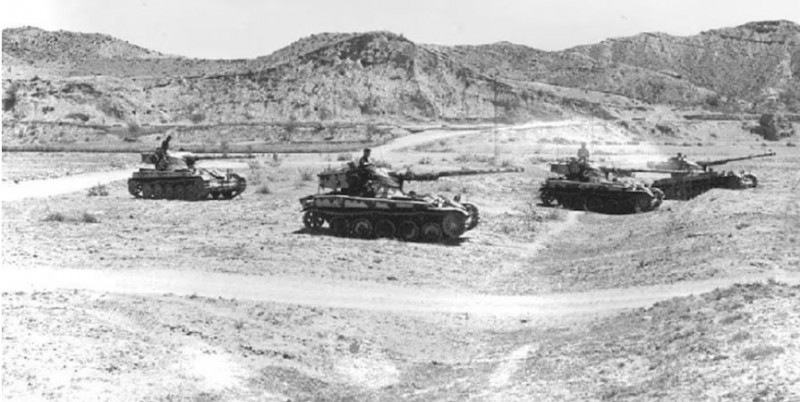
The Indo-Pakistan War of 1965 was a defining moment in South Asia's history, significantly influencing the region’s geopolitical landscape. On September 6, 1965, the Indian Army launched a surprise attack on Lahore, Pakistan’s second-largest city, drawing global attention and altering the war's trajectory.
The Roots of the Conflict: Operation Gibraltar
The conflict traces its origins to August 1965, when Pakistan initiated Operation Gibraltar. The plan aimed to infiltrate Jammu and Kashmir, incite local insurgents, and undermine India's control over the region. Fueled by the belief that Kashmir, with its Muslim-majority population, rightfully belonged to Pakistan, this operation hoped to exploit local dissatisfaction. Pakistan believed India’s military strength was still recovering from the 1962 Sino-Indian War, making this the ideal moment for action.
Pakistan's Strategy for Kashmir
Since the 1947 partition, Kashmir had been a contentious issue. Pakistan controlled parts of Kashmir, now known as Azad Jammu and Kashmir and Gilgit-Baltistan, while India governed the remaining territory, including the Kashmir Valley. Pakistan’s leadership, under President Ayub Khan and Foreign Minister Zulfikar Ali Bhutto, believed local insurgents could be mobilized to revolt, especially with external support. The goal was to weaken India’s hold on Kashmir and potentially seize the region.
The Capture of Haji Pir Pass
By August 28, 1965, the Indian Army had captured the strategically important Haji Pir Pass, reducing the travel distance from Jammu to Srinagar by over 200 km. The pass had been a frequent route for Pakistani infiltrators entering India. Its capture was a significant victory, straightening out the border and simplifying movement in the region.
However, following the ceasefire, Prime Minister Lal Bahadur Shastri controversially returned the Haji Pir Pass to Pakistan in exchange for promises of peace at the Tashkent Agreement. Some believe external pressures influenced this decision, while others argue India may not have fully understood the pass's strategic value.
India's Counterattack on September 6, 1965
On September 1, Pakistan launched Operation Grand Slam in the Akhnoor sector near Jammu, sparking India's retaliation. On September 6, the Indian Army carried out a surprise cross-border attack, targeting the Lahore sector. Indian troops crossed into Pakistan along the International Border, catching the Pakistani forces unprepared.
The attack swiftly pushed Indian troops to the outskirts of Lahore, taking the Pakistan Army by surprise. The goal of this operation was not to capture Lahore but to shift Pakistan's focus away from the Jammu front and gain leverage for future negotiations. Indian forces advanced to the Ichhogil Canal, a key defensive line for Lahore, and even reached Batapur, a suburb of the city.
Strategic Restraint and Ceasefire
Despite their initial success, Indian military leaders, including former Punjab Chief Minister Capt Amarinder Singh, noted that India did not intend to fully capture Lahore due to the massive number of troops required to hold the city. Plans were made to block key routes if necessary, but the operation was not meant to escalate beyond this point.
The conflict officially ended on September 22, 1965, when the United Nations brokered a ceasefire. Both countries retained control of some of each other’s territories. The war's aftermath led to the signing of the Tashkent Agreement in January 1966, which called for the restoration of diplomatic relations and the withdrawal of troops to pre-war positions.
The War's Outcome
The 1965 Indo-Pak War’s result is often debated. Pakistan's goal of seizing Kashmir was unsuccessful, while India successfully defended its territory. Although the Tashkent Agreement restored peace, the core issue of Kashmir remained unresolved, leading to continued tension between the two nations.